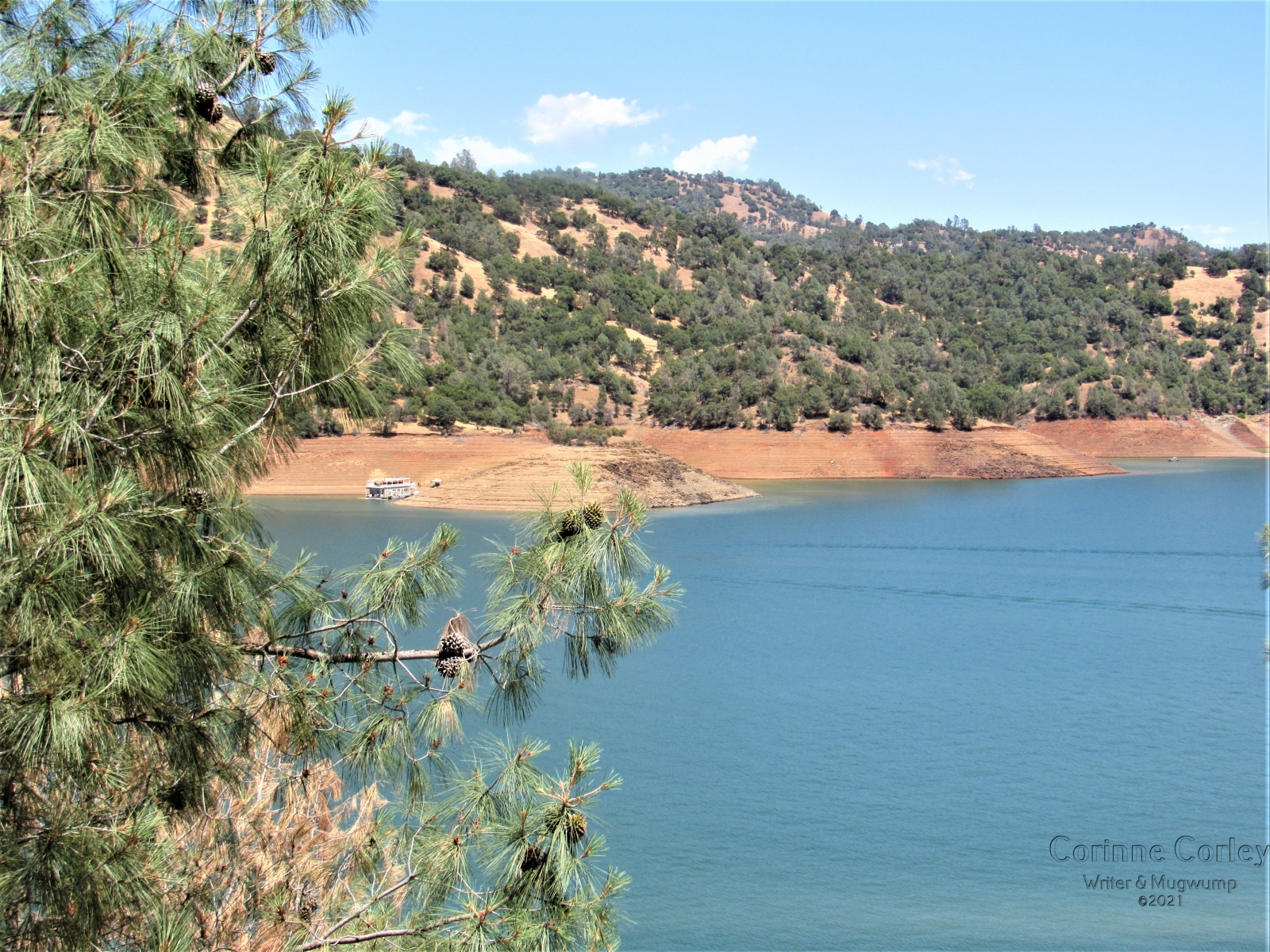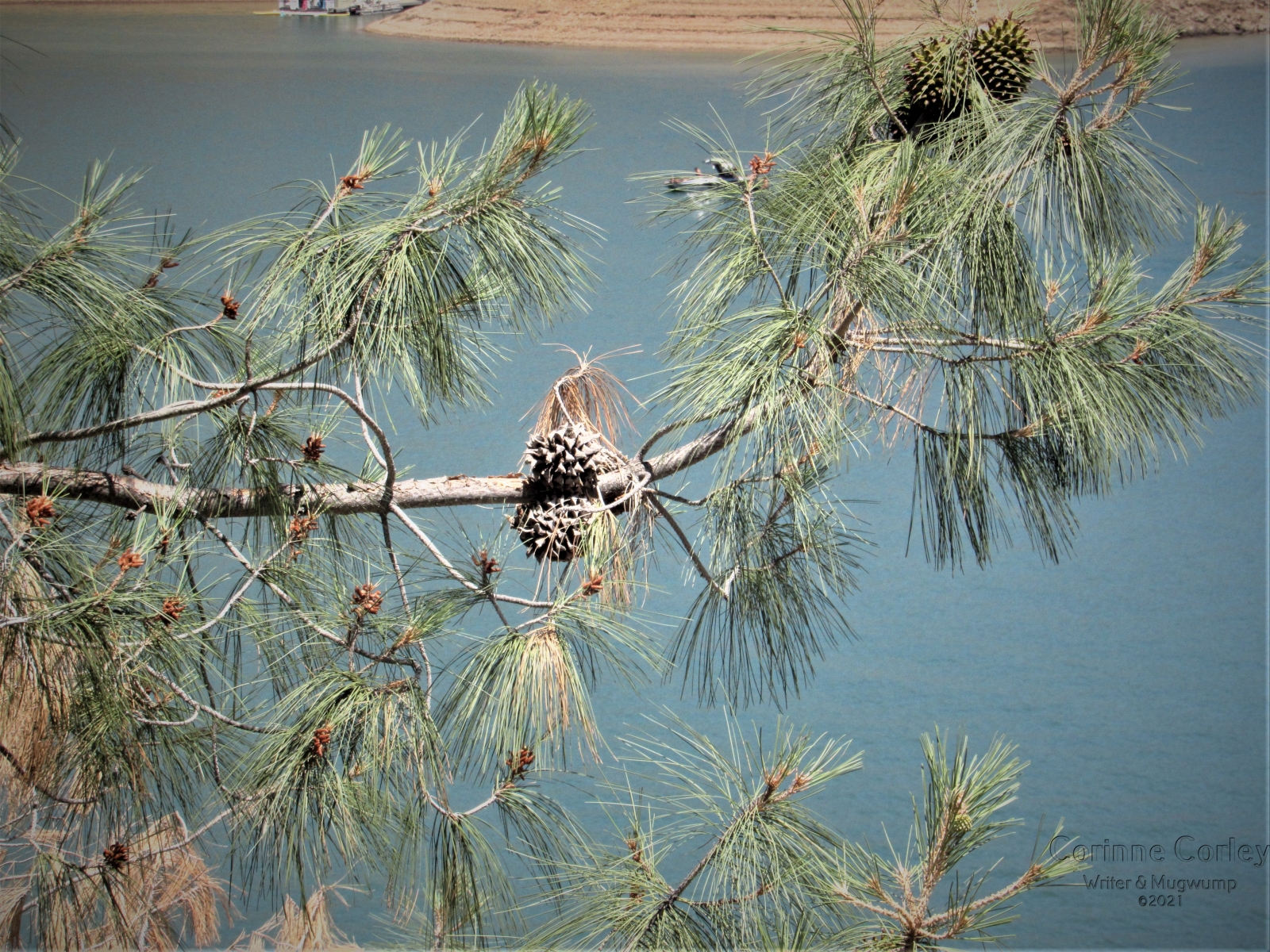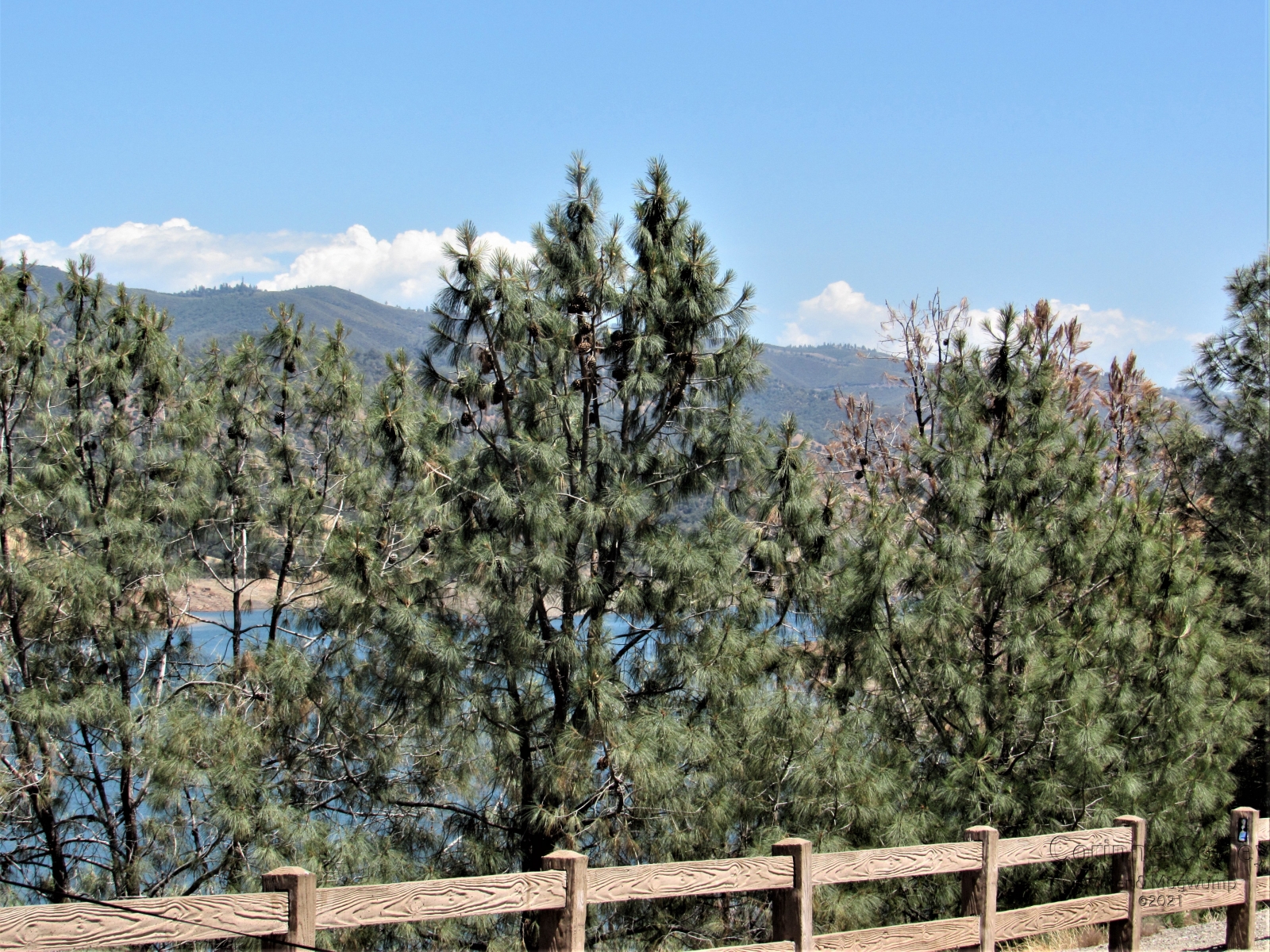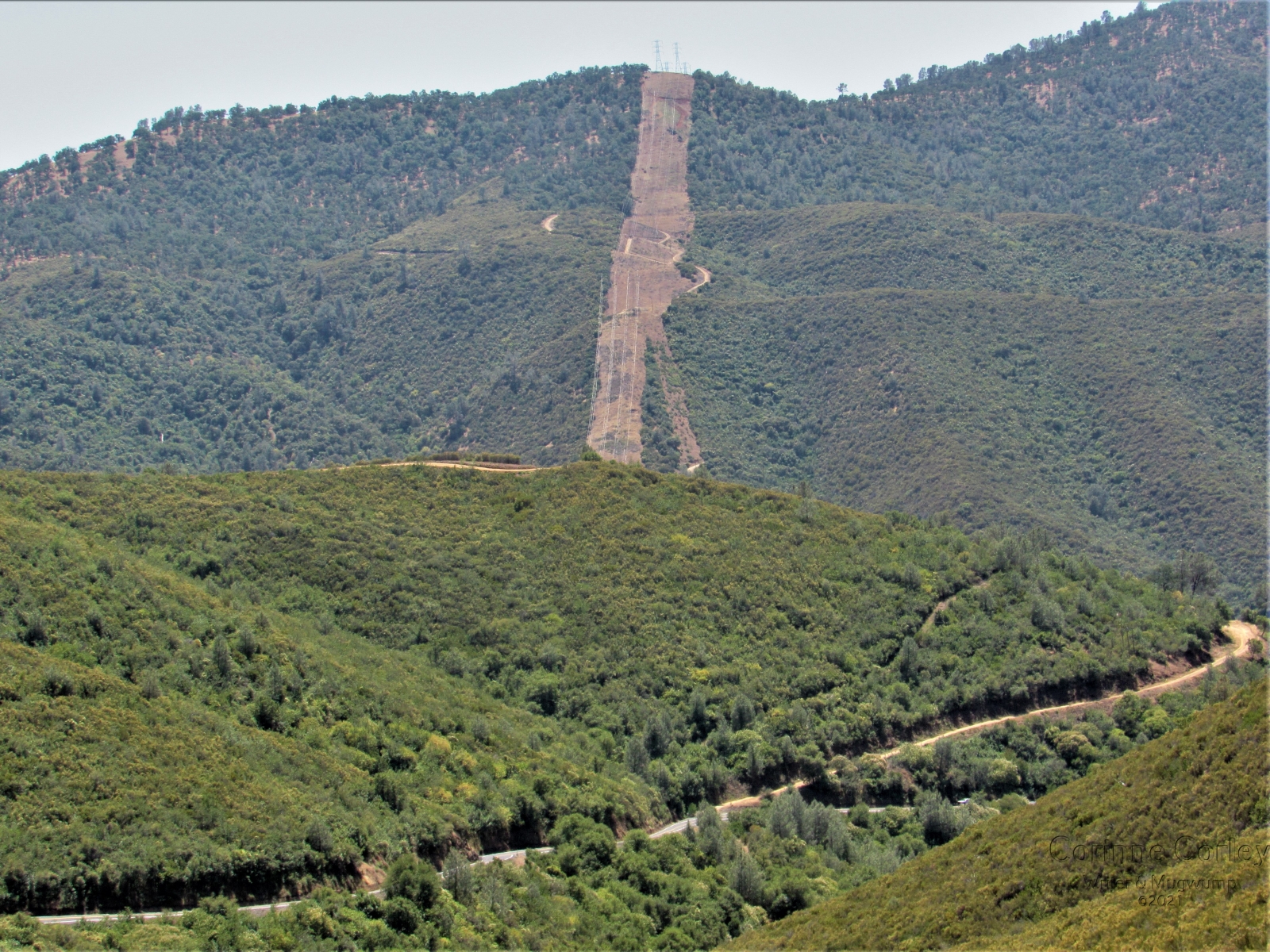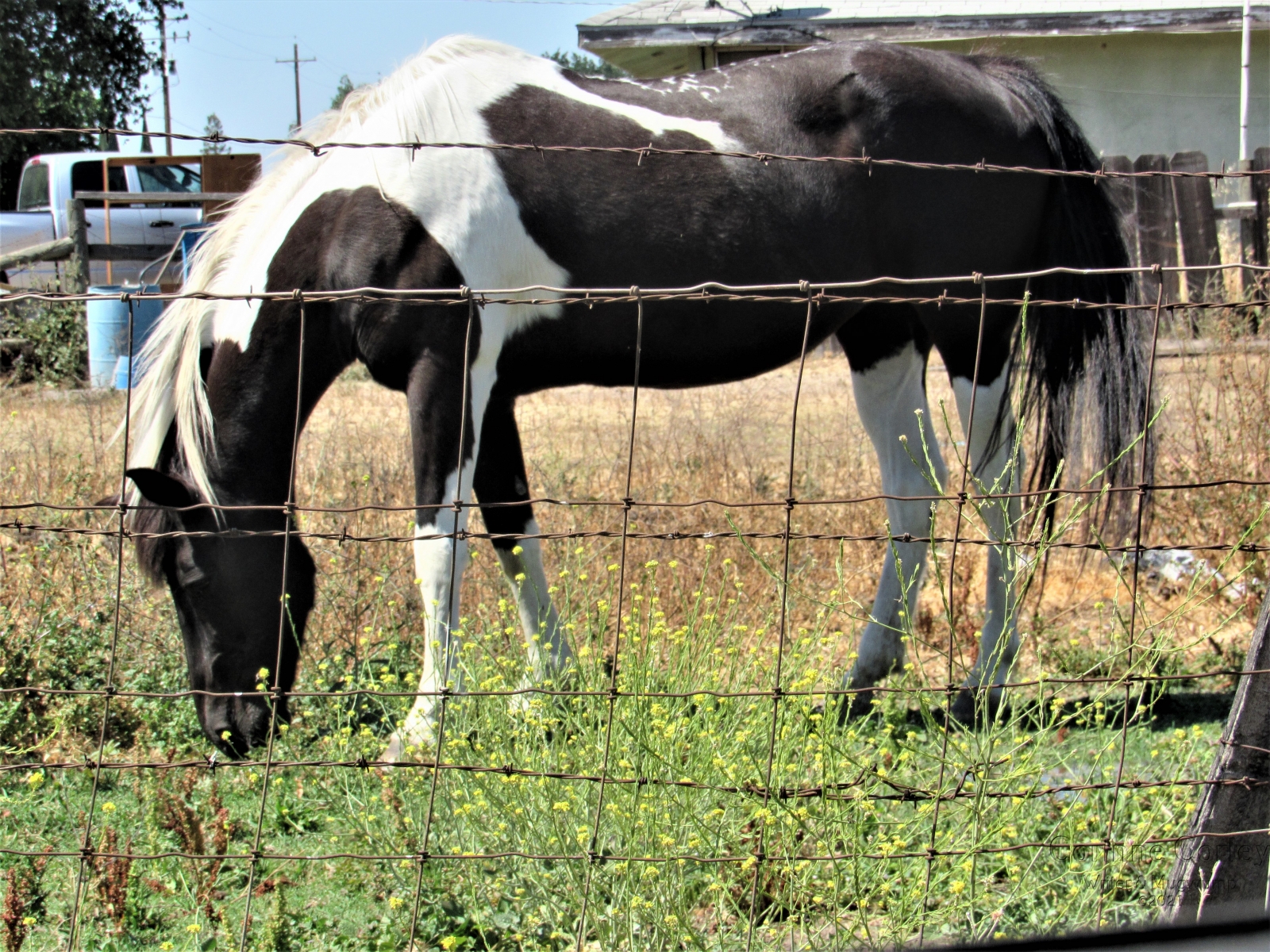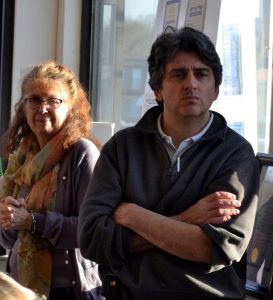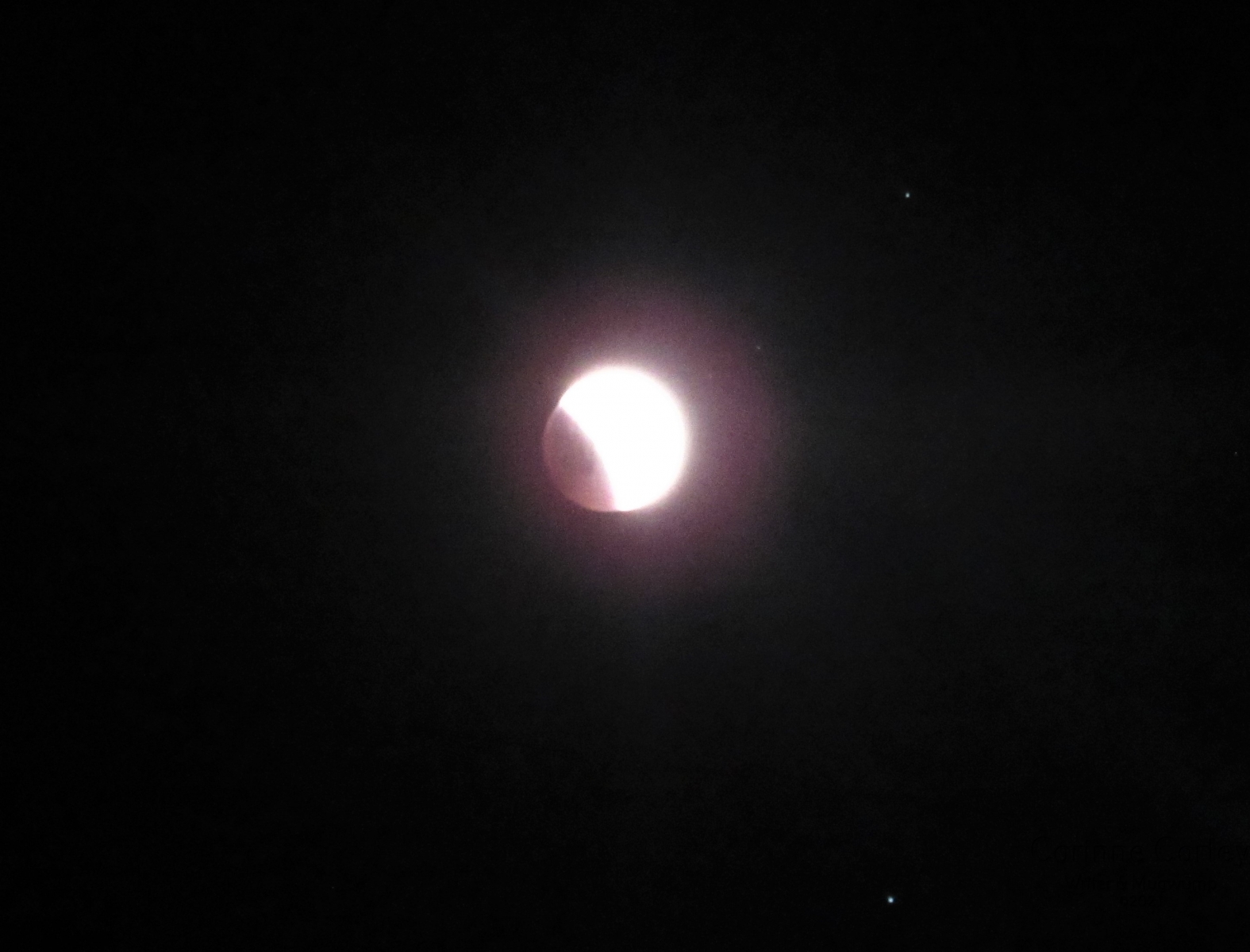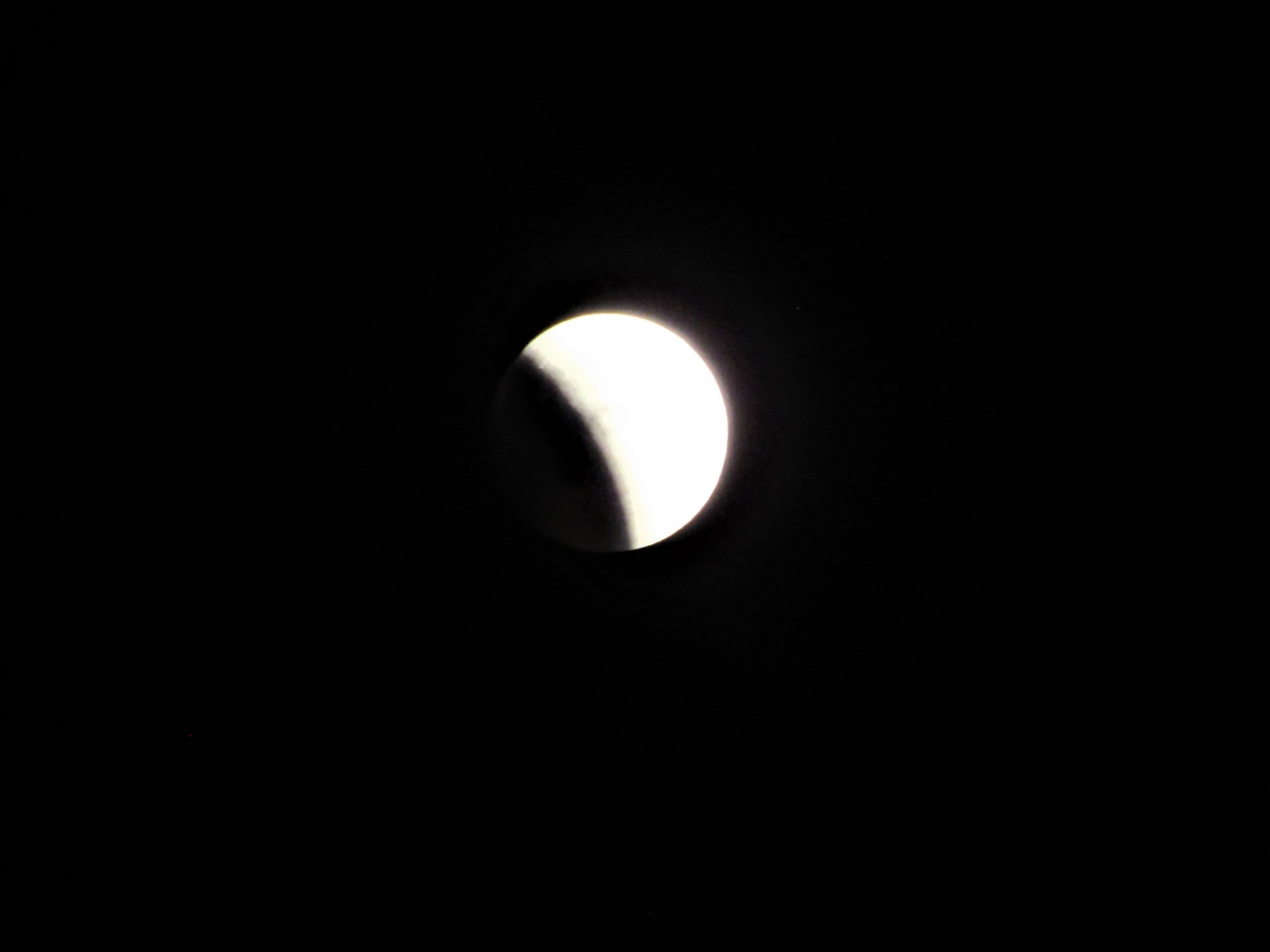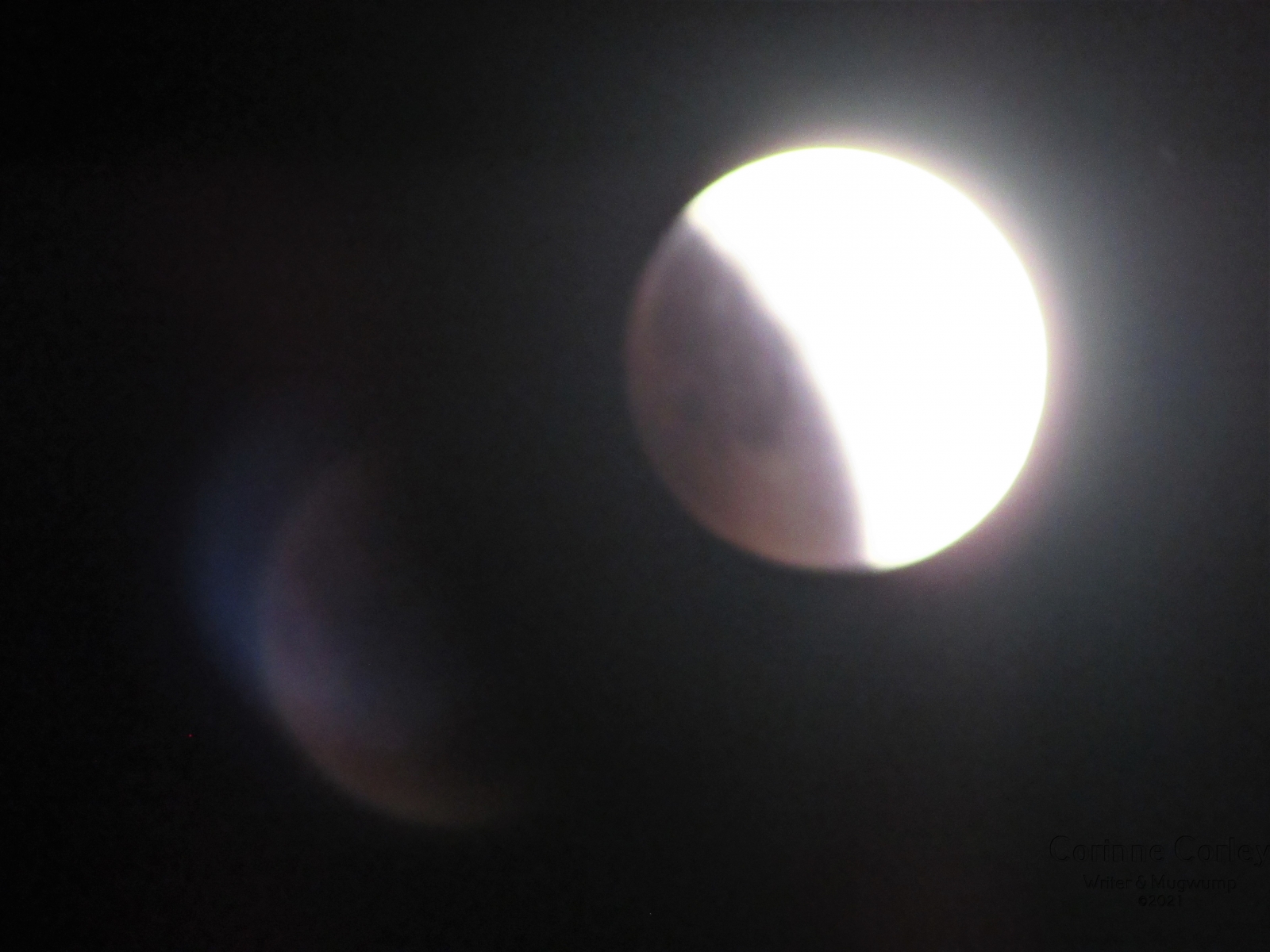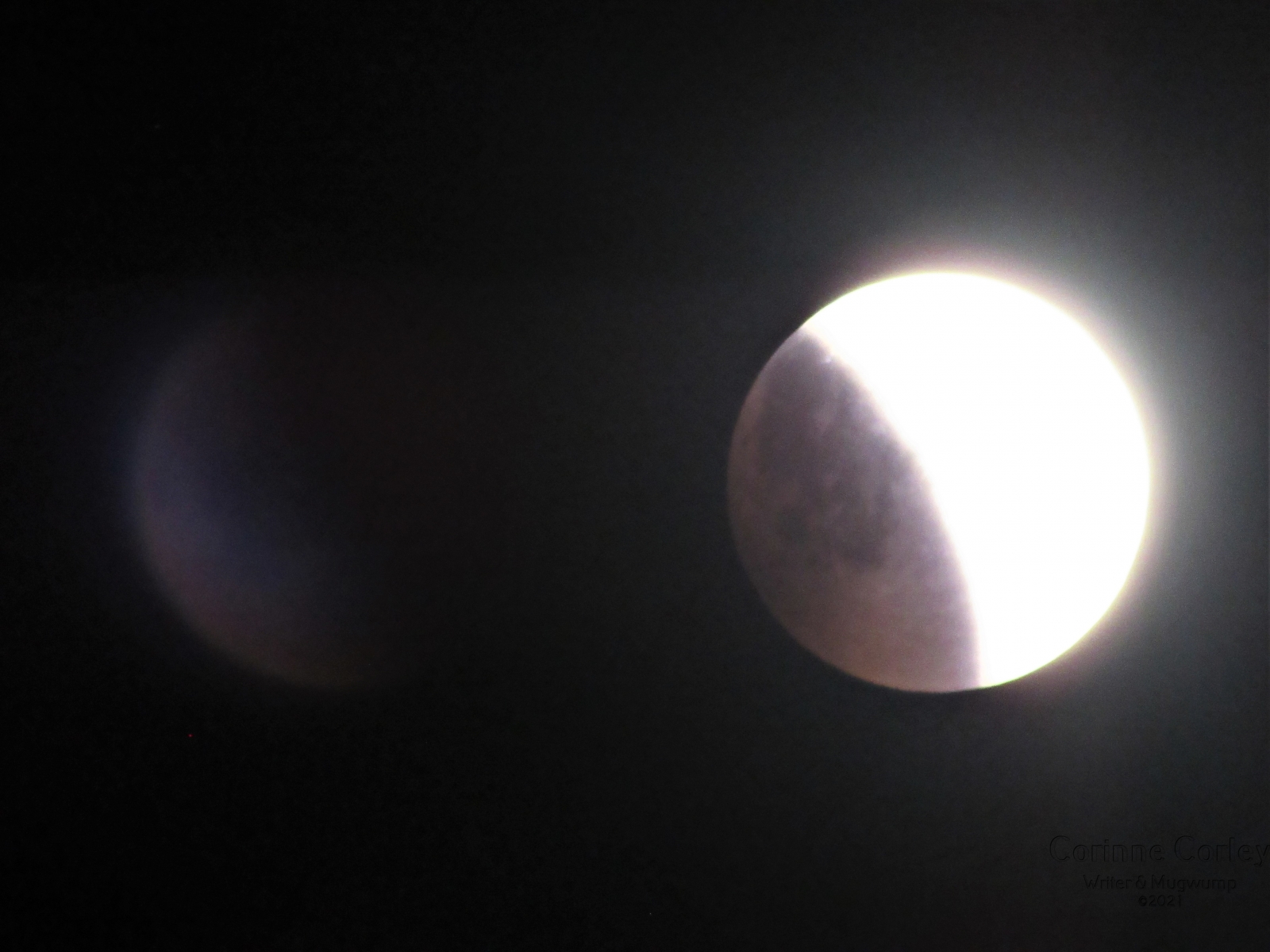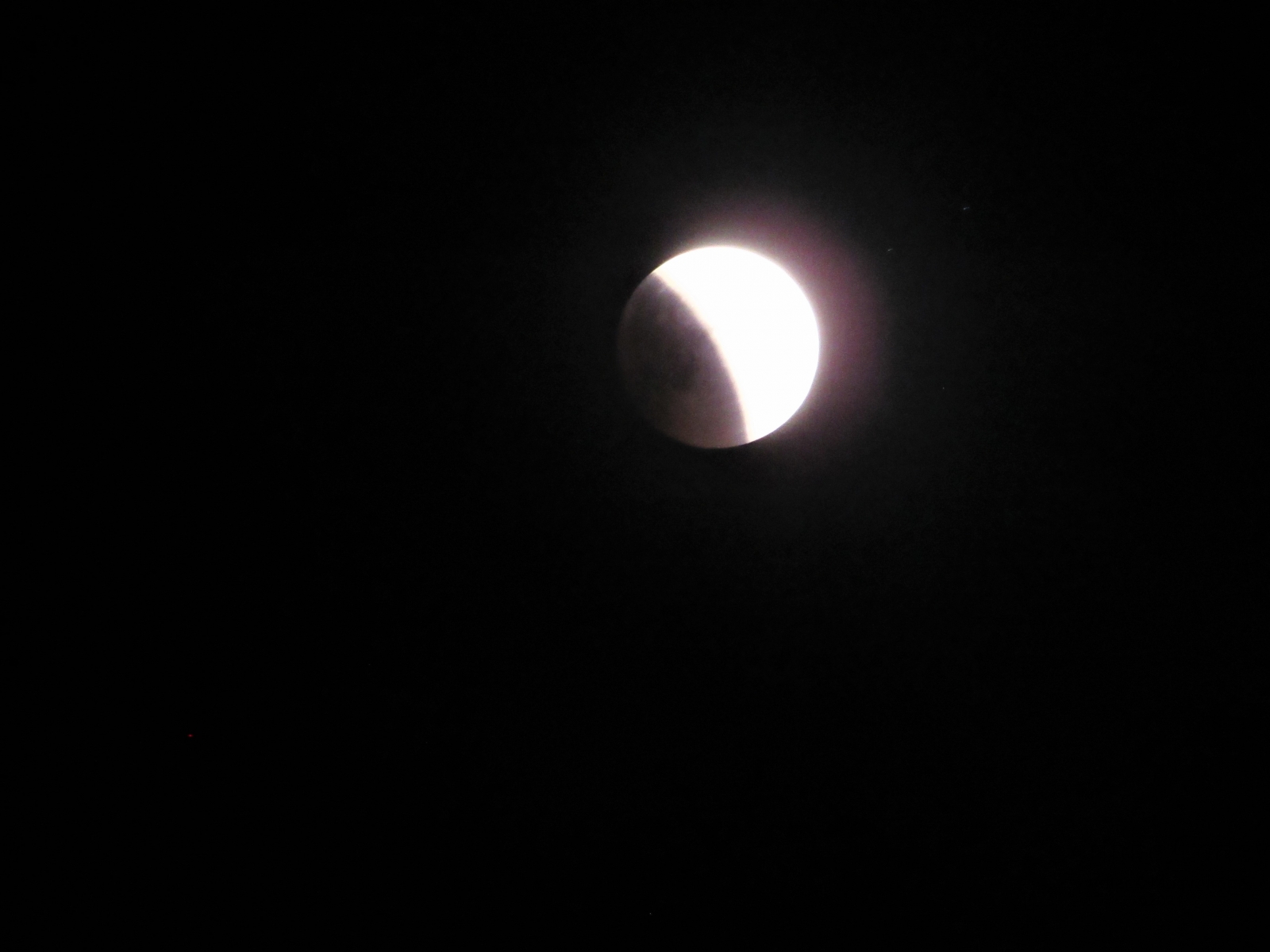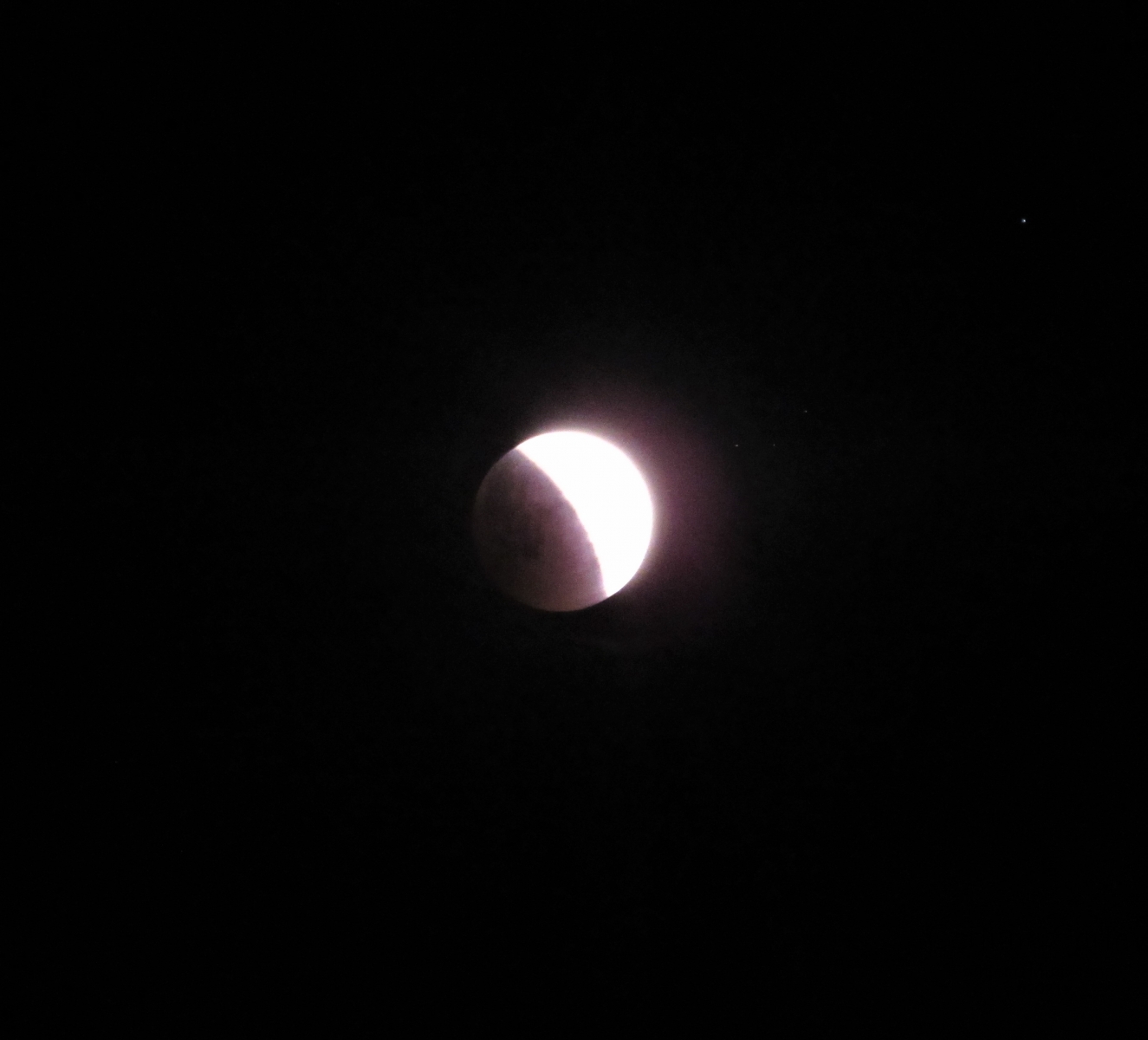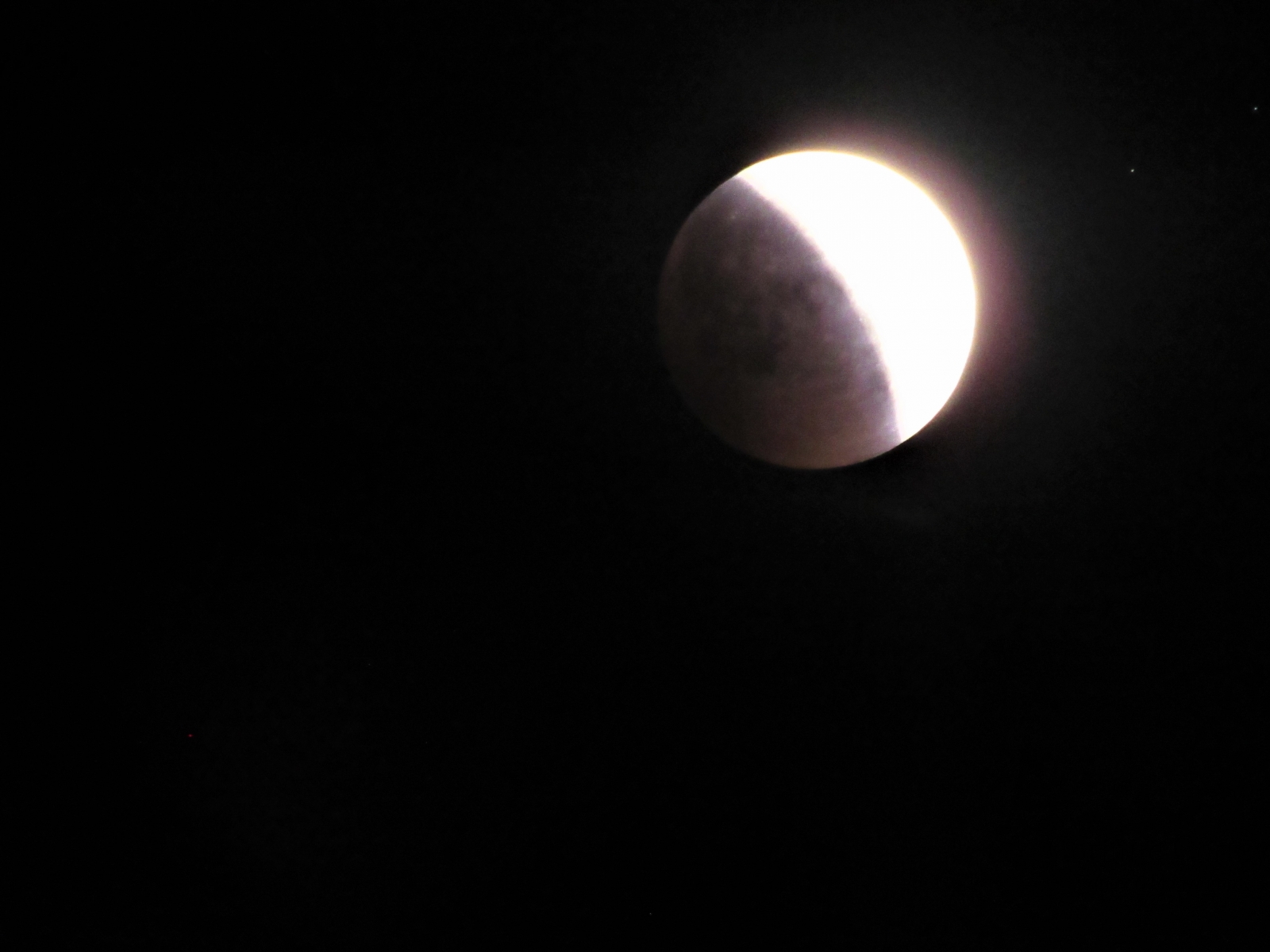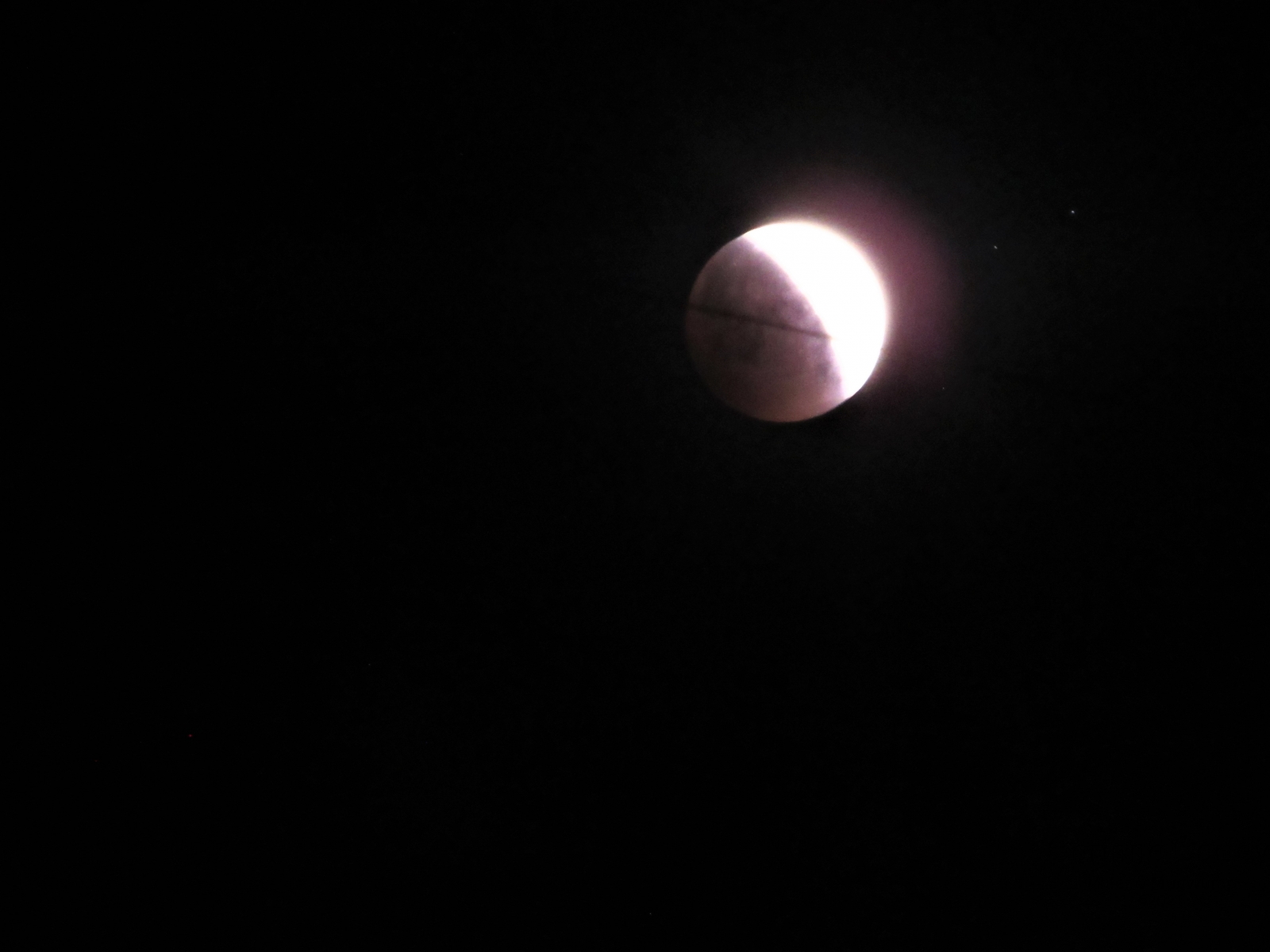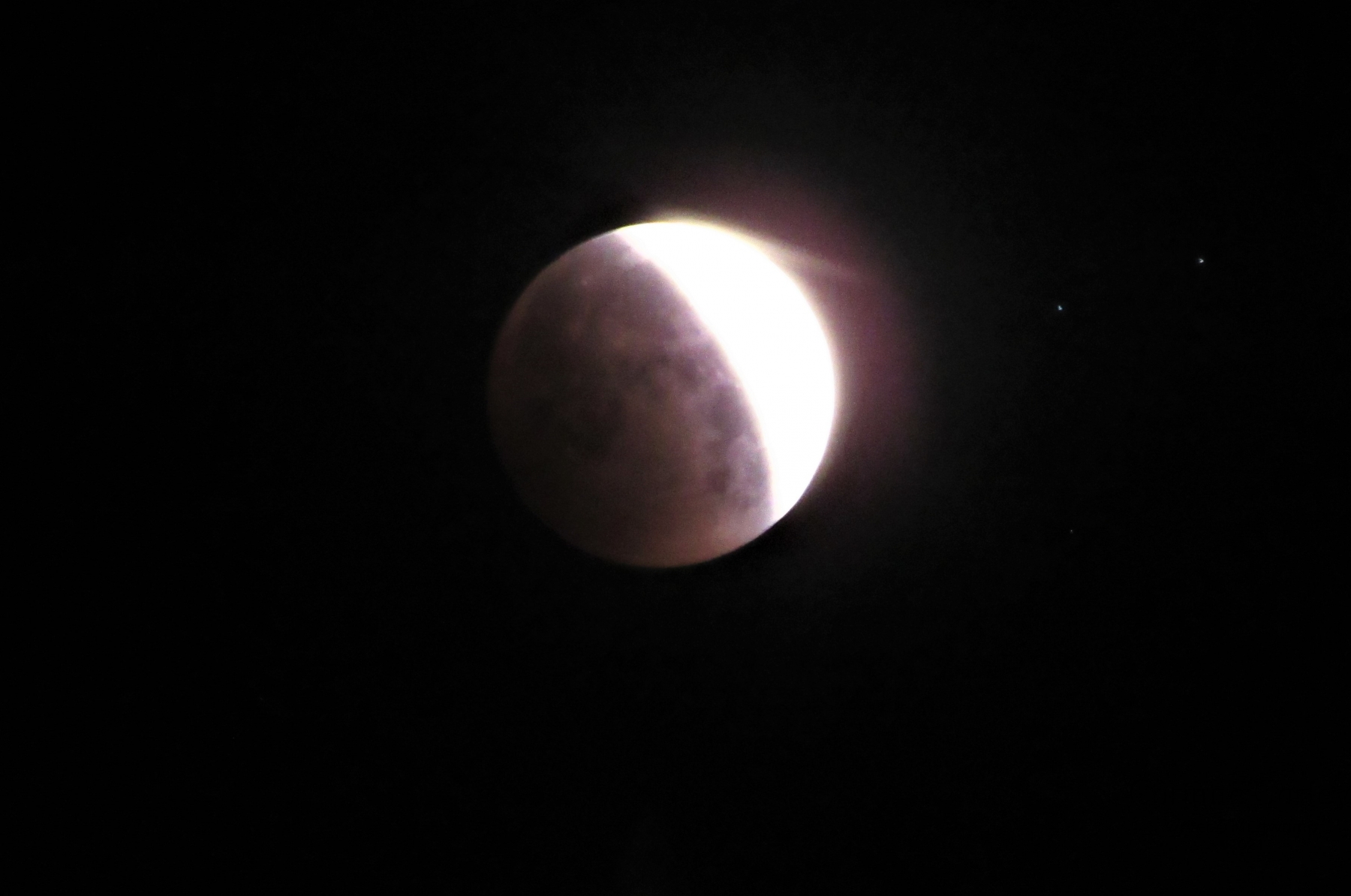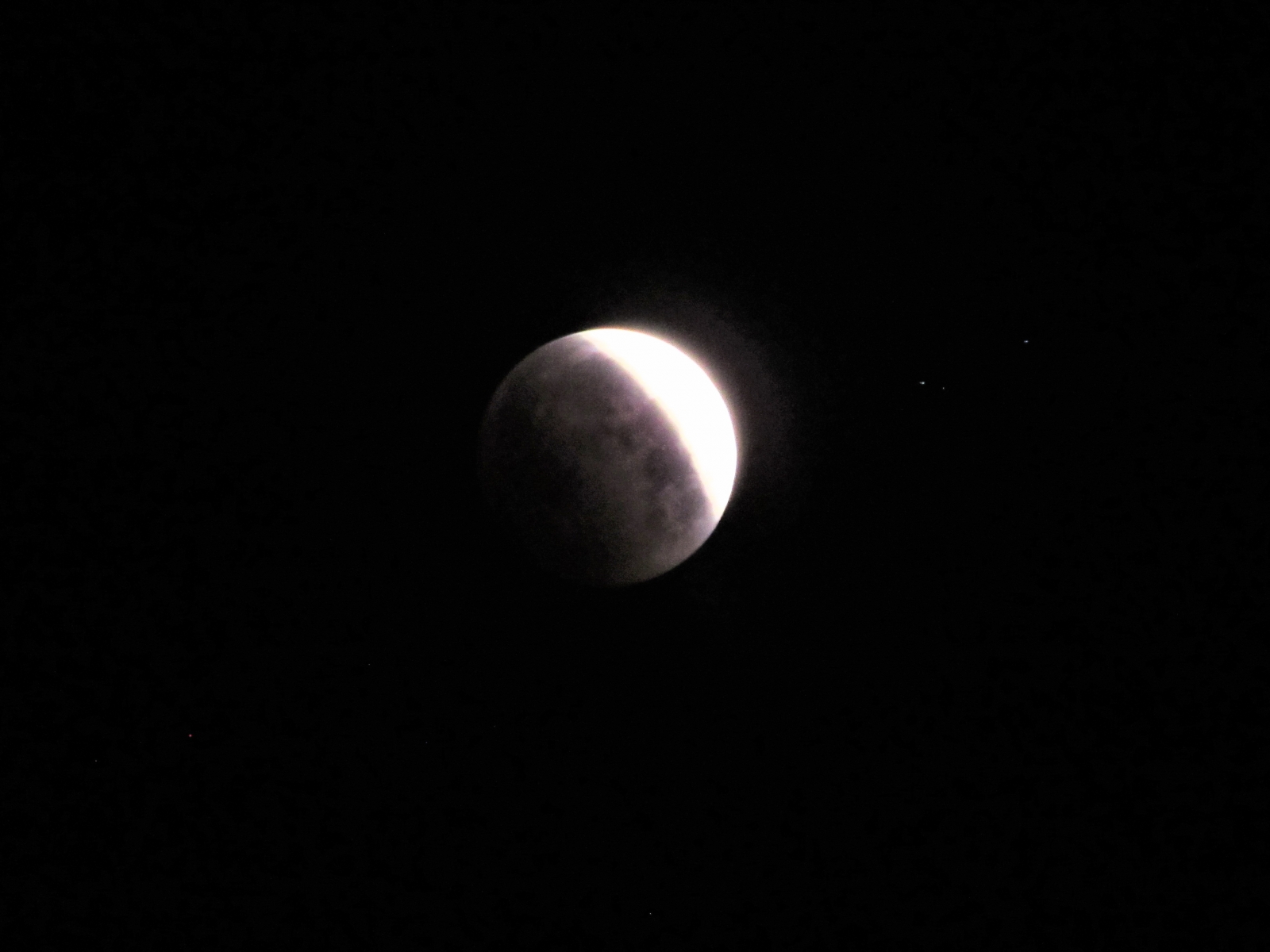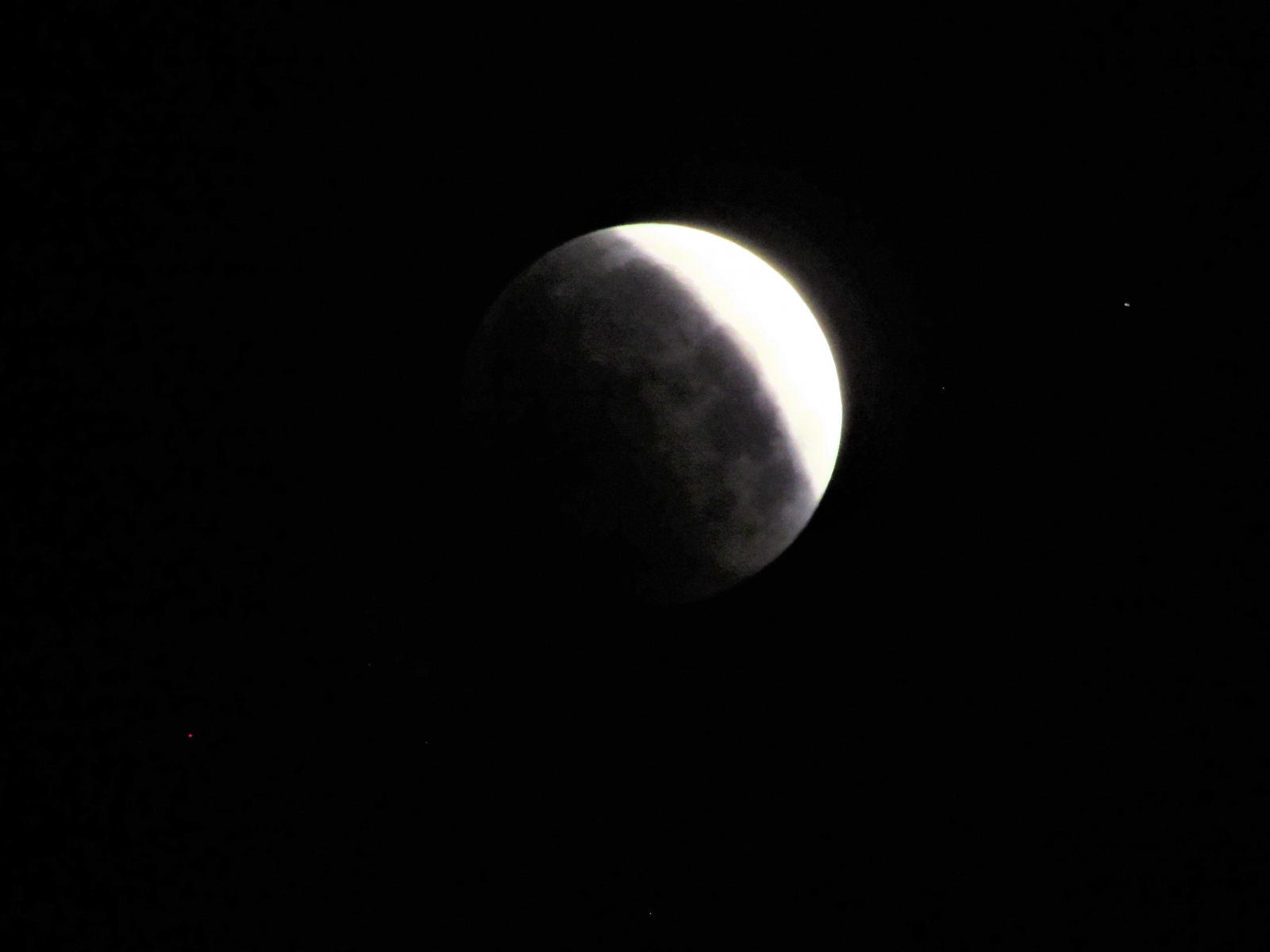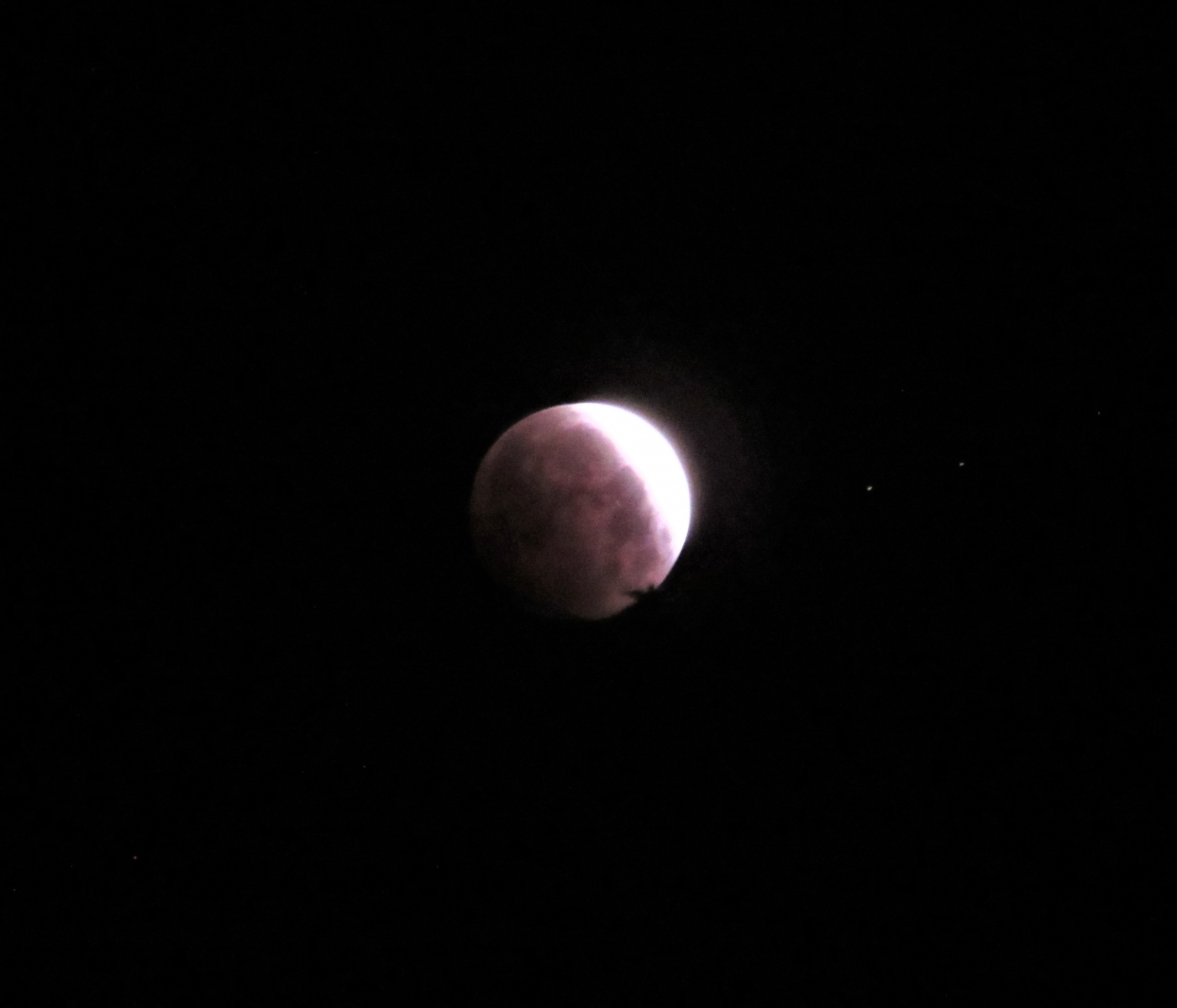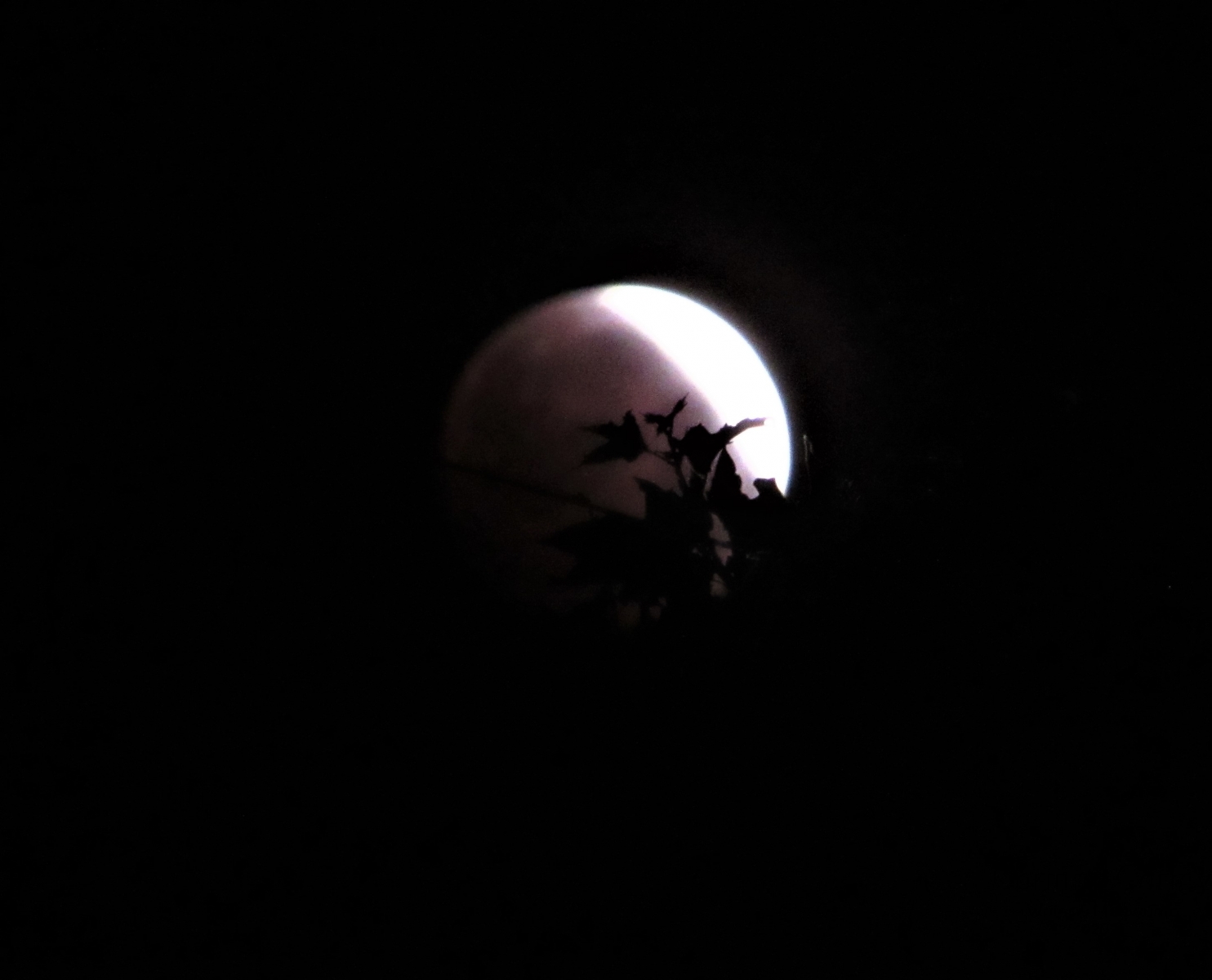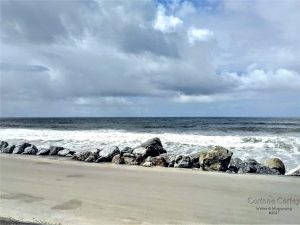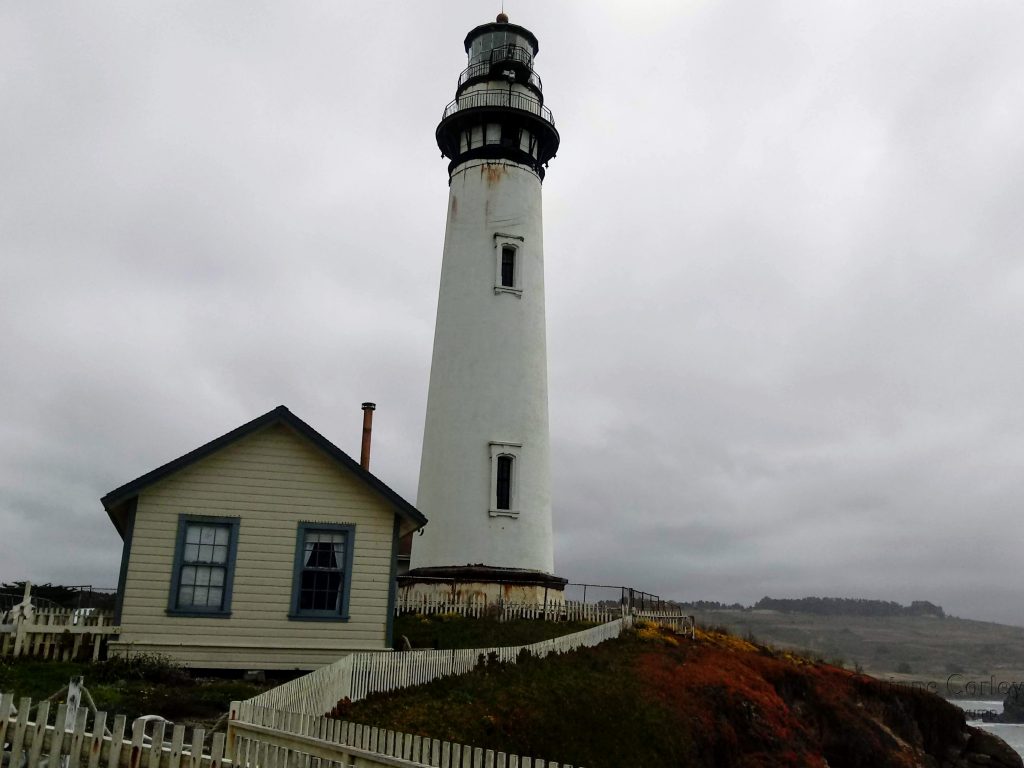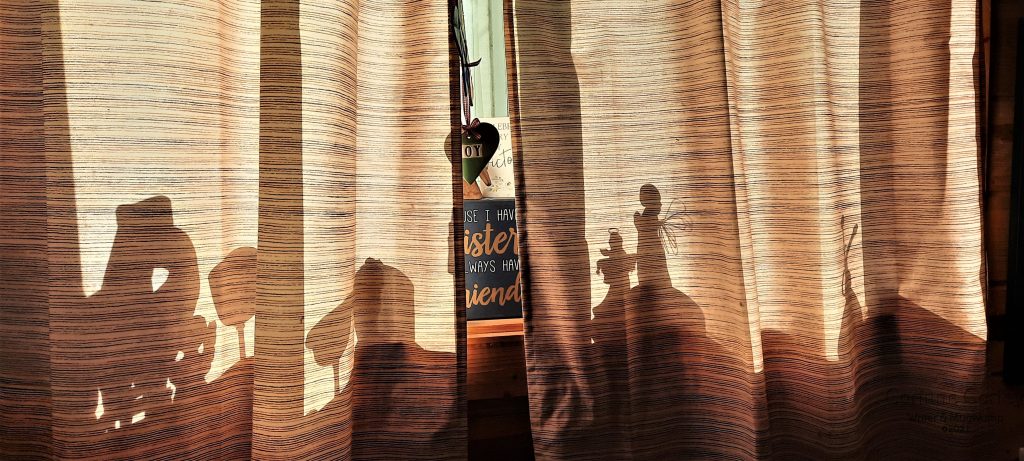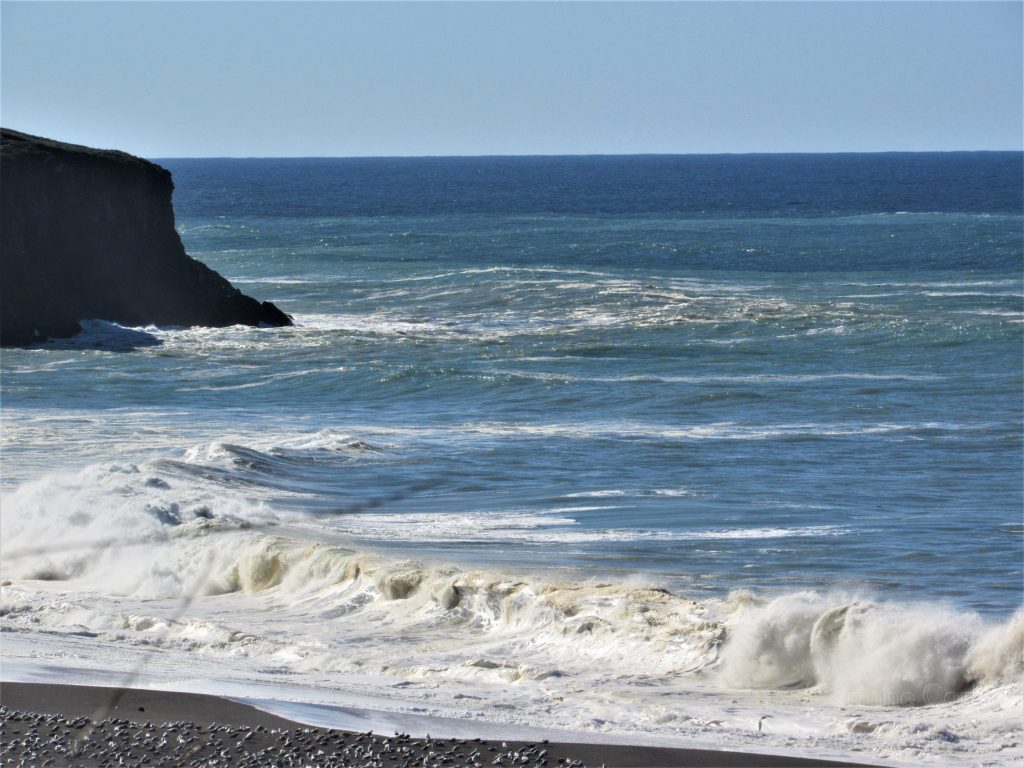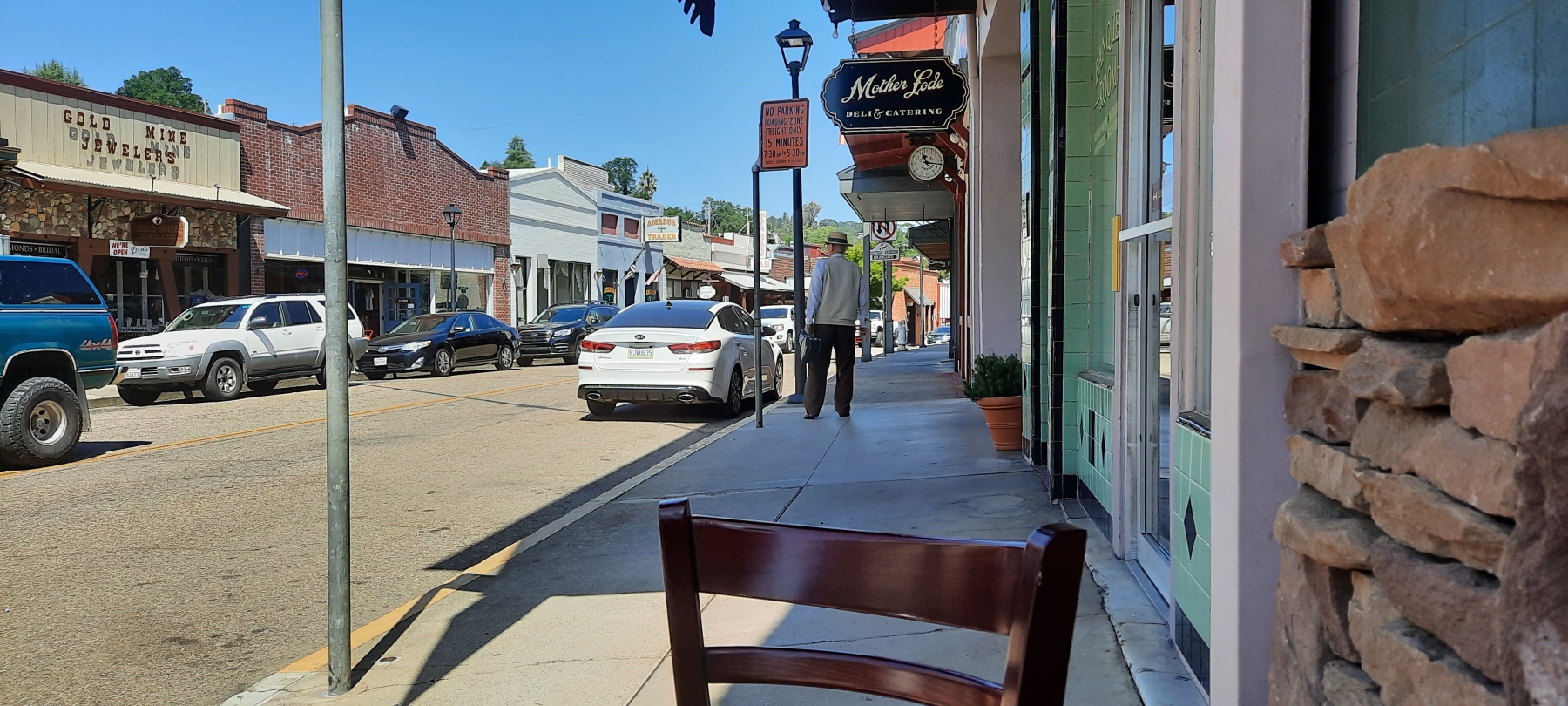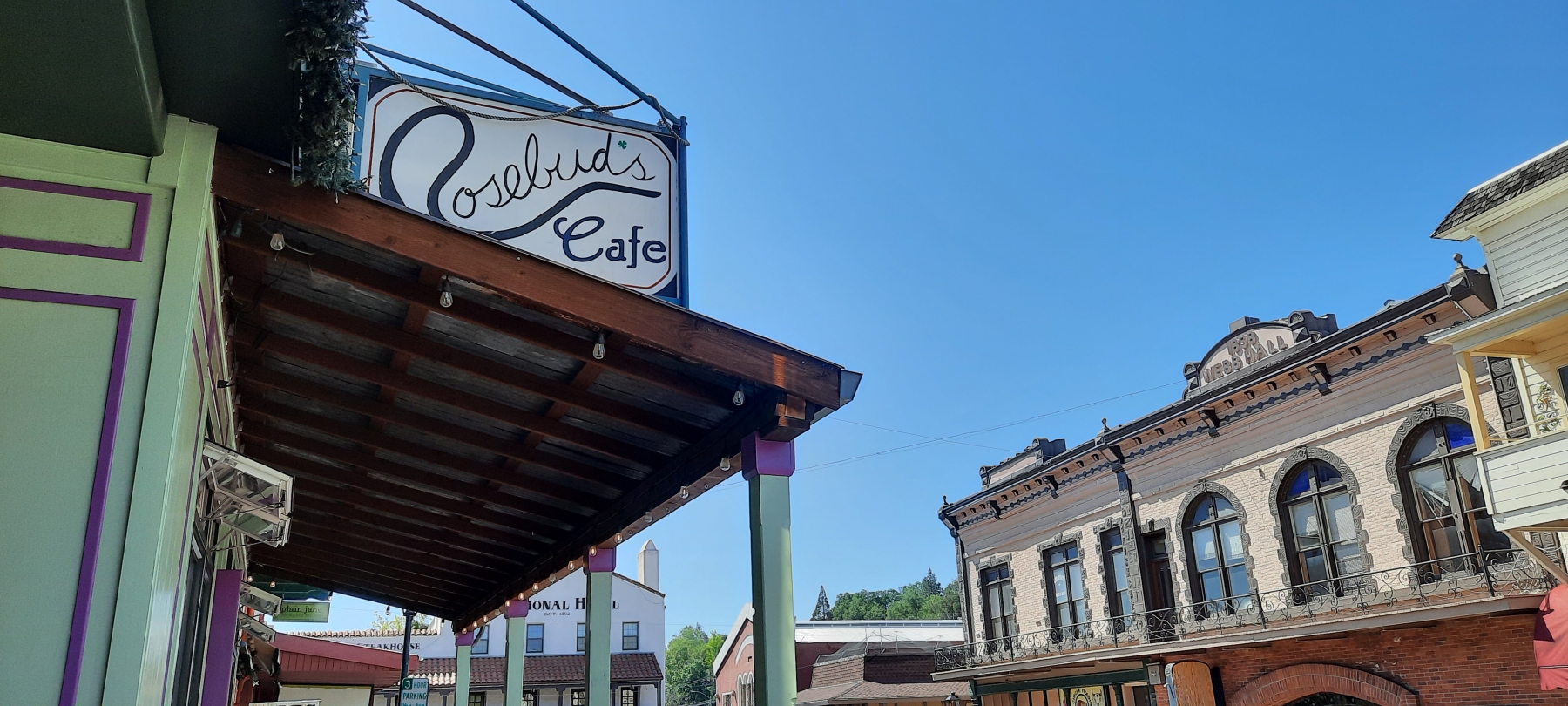Night settles around me, a soft swathe of silk in the cool of the evening. I’ve passed the hours with indolence customary to Friday — reading an old British novel, sitting in the battered wooden rocker eating an orange.
The day started early, with breakfast in Sacramento. A woman from home — true home, on the banks of the Mississippi where I started this funny life — stopped the night on her way to see her daughter. Though we had met before now, our lives had barely touched and not for decades. Yet we chattered like old friends. The waiter took our picture. I examined the photo later. But for a certain difference in height and coloration, we might have been sisters and certainly could be mistaken for kin.
I came south by the back road, along the river. I saw no one, and spoke not a word. Back at the park, I chatted with the woman who works in the office. At my site, I exchanged pleasantries with a neighbor. But the rest of the day met me on my own, silent, thoughtful.
My breakfast companion asked me what year my mother died. 1985. To be precise, 6:55 a.m. on 21 August 1985, twenty days shy of her 59th birthday, 15 days before I myself would turn 30. As I gazed on the calm surface of the river this morning, a certainty flowed through my veins. My mother would have liked this place.
She would have stopped her car on the banks of the Sacramento and studied the wildflowers. At her urging, we’d detour down every little sideroad, over every ancient drawbridge. We’d buy oranges from the trucks parked along the road in Walnut Grove and fresh eggs from the organic farmers. Here at Angel’s Haven, Mom would take a broom to my little deck and scrub the vinyl porch chairs. She would know why my gardenia bears more and more yellow leaves. Her strong brown hands would chase the spider webs from the pottery in the transom window.
My mother had her first child in 1947 and her last in 1959. Between one or two, a pregnancy faltered and failed. She bore impossible burdens with incredible grace. She skipped like a girl despite the heavy burden of an alcoholic husband in an era when domestic violence had not yet been christened as such or given rise to an unfortunate industry. You didn’t talk about what happened at home. You just endured.
One day a church lady leaned over me and tweaked a curl. She pinched my nose and said, “You’re a cute little thing, your Daddy must love you. What does your Daddy do, honey?” I said what I knew at age five, what I had heard my mother murmur to her sister. “He drinks.” The woman gasped. I had no idea why she blushed and moved away in the church parking lot.
My mother hurried me home, telling me that I should not talk about my father like that. I wouldn’t understand what I had done until much later, when I stood outside our home on Halloween, the snow softly falling on our yard. Through the front window, I could see my father sitting on the couch. My mother, one of my sisters and her boyfriend, and my older brothers stood in a ring around him, dark shadows of anger staining their faces. I was a sophomore in high school. My father had been missing for a year or two. We did not know, or care, where he had gone.
I slipped from the car of the parent who had given me a ride home just as my brother Mark eased out of the front door to meet me. He had my mother’s wallet gripped in his hand. “Mom says to hide this,” he told me, and thrust the thing against my chest. At that moment, a siren rose high in the air above the town. I had forgotten about the chaos of having a drunk for a father. I stood in the cold and wept, snow swirling around me, while the Jennings police crossed the driveway and asked what was happening. I gestured. They went into the house just as my friend’s father drove away.
The next summer, I stayed out all night for the first time. A classmate and I met up with some public school boys who took us to an apartment. Nothing happened; at least, not to me, and not to my knowledge. But I had lied to my mother. When I didn’t appear by breakfast, she called the home of the girl with whom I’d told her I was spending the prior night, and discovered my treachery. When the boys delivered me to the doorstep, my mother said, “Go to your room.” She didn’t lecture. She stood in the doorway of the bathroom while I washed my face, then told me she was disappointed in me. It hurt more than all the beltings my father had ever administered to the backs of my crippled legs.
I finished college in December of 1976 and moved to Boston. I had applied to graduate school and wanted to establish myself before classes began in the fall. Instead, I fell into a crowd of actors who drank too much and slept with each other’s girlfriends and boyfriends. By August, I crawled home to St. Louis, settled into my old bedroom, and started back with the last man I had dated before leaving town.
In January of 1978, I had a miscarriage in my mother’s bathroom. I bled for a half an hour behind the locked door. Finally, I let my mother come into the small room and put me in a warm bath. She wanted to take me to the emergency room. I slipped under the foamy bubbles and sobbed. While she mopped the floor, I dried myself with one of our old towels. I let her wrap me in a flannel nightgown and tuck me into bed. I slept for two days while she kept everybody else from bothering me or asking what was wrong with me.
I got pregnant with my son Patrick on Halloween in 1990. I knew his father wanted nothing of children, having had a daughter die at birth two or three years before we met. He couldn’t handle any more loss. I would be raising the child on my own. I mourned his choice for my son, but for myself, I despaired because I would be going through my pregnancy without my mother.
Lucille Johanna Lyons Corley had a way of making you feel as though everything you said bordered on brilliance or wild, rollicking humor. She listened with a singular intention that bolstered your belief in the virtue of your theories or the attainability of your pie-in-the-sky dreams. Everything my mother did received her full focus. Despite the certain fatigue which must have dragged her down for most of her married life, she rarely refused any request put to her by one of her children. She dyed Easter eggs, carved pumpkins, stood bail, explained the silver market, and guided our hands in the rich yeast bread dough of her maternal Austrian heritage or the rounded kibbeh of her father’s Lebanese kitchen.
Before I left Missouri, I went to my mother’s grave for the first time since the year we buried my brother’s cremains beneath my parents’ headstone. A cemetery worker helped me find the site, overgrown and untended. I knelt to place a little glass jar of water with a few wildflowers. I traced my mother’s name with the tears that slid down my face. Songbirds twittered in a distant tree. Mother, oh mother, I have such need of you, I whispered.
I have no plans for this Mother’s Day. My son lives two thousand miles from me, so there will be no brunch reservation, no corsage to pin on my dress for church. I have a different life than that. There will be a card; maybe a phone call; and my sister Joyce will doubtless send a text. Happy Mother’s Day to my baby sister, she will say. I love you! she’ll add. I will walk the meadow behind my house and watch the hawks fly through the pale blue of the Delta sky. I will think of my mother. As evening draws near, I will find somewhere to watch the setting sun spread its amber glow on the western horizon. When night has overtaken our little island, I will go inside and ready myself for sleep.
It’s the seventh day of the eighty-ninth month of My Year Without Complaining. Life continues.
-
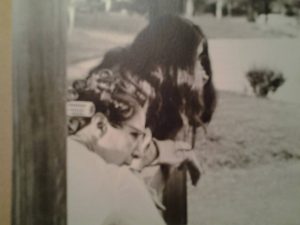
-
My mother and me, at the Bissell House in Jennings, Missouri, 1970.
-
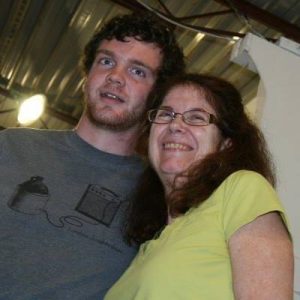
-
My son and myself at the VALA Gallery in Kansas City, c. 2014.
